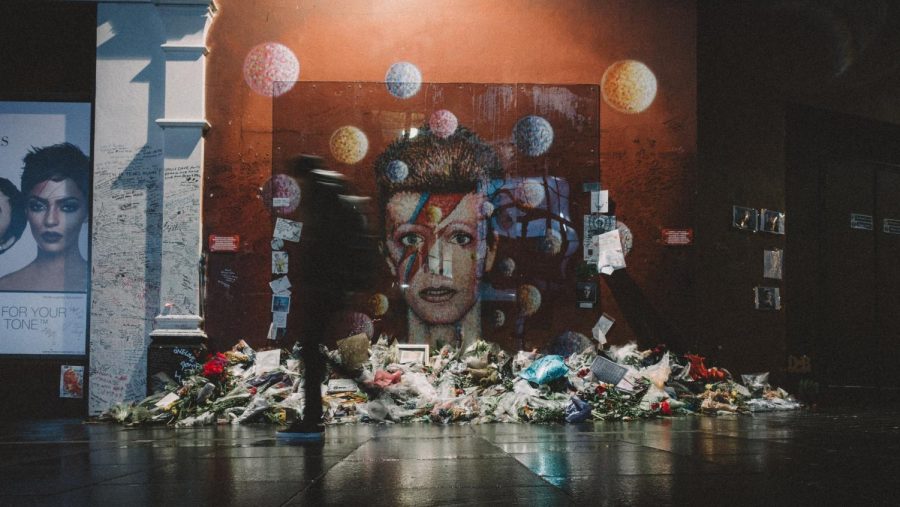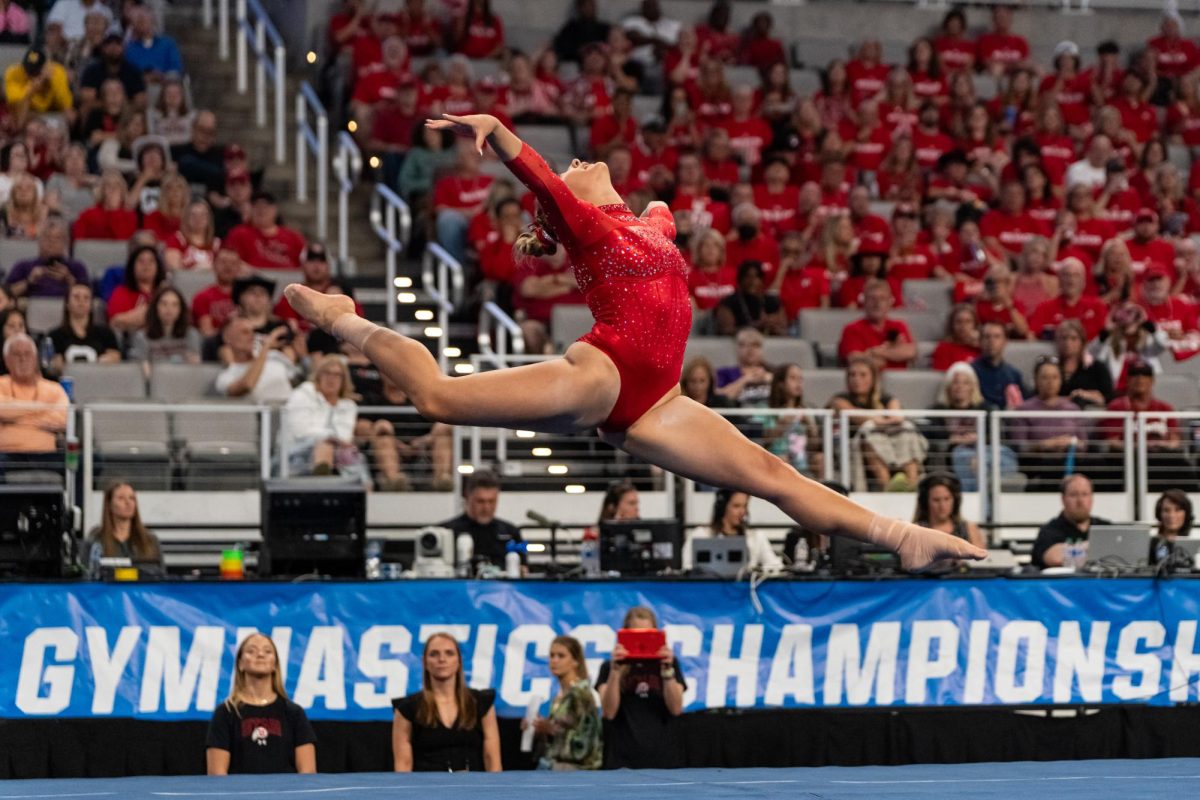‘Stardust’: A Look Into the Life and Accomplishments of David Bowie
November 9, 2020
“Stardust,” a biopic following the prodigious career of British singer-songwriter David Bowie, is all set to release on Nov. 25, 2020. Starring Johnny Flynn as David Bowie and Aaron Poole as Spiders from Mars’ guitarist Mick Ronson, “Stardust” traces the origins of Bowie’s surreal and unabashed alter ego, Ziggy Stardust, all the way back to the British native’s first appearance in the United States.
Well-done, thoughtful biopics, such as the Queen-tribute film “Bohemian Rhapsody” have proven that it is possible to achieve capturing a star’s likeness with both flexibility and creative license. And with all the accolades attained by Rami Malek’s performance as Freddie Mercury, it is not hard to imagine “Stardust” doing the same.
However, what made “Bohemian Rhapsody” a recipe for success, as well as palatable to a modern audience, was its inclusion of Freddie Mercury’s operatic rock-ballads, including classics such as foot-stomping “We Will Rock You,” “Another One Bites the Dust,” and “We are the Champions.”
“Stardust” is already facing some hindrances right out of the gate, such as the film’s lack of access to Bowie songs. The Bowie estate is not allowing for creative projects to obtain music rights, so director Gabriel Range will have to make do without any original Bowie songs while still trying to render a realistic, autobiographical portrayal of Bowie’s life.
For Johnny Flynn, an English actor known for the campy character he plays in popular Netflix series “Lovesick”, it will be a challenge to live up to Bowie’s name, especially with the musician’s life and legacy held in such high esteem.
First Impressions
The official trailer for “Stardust” has quite a few problems with it. The whole David Bowie aura is all about authenticity, originality and boldness. Johnny Flynn’s take on the British legend as presented by the trailer is much more meek, quiet and uncertain. As far as what the trailer shows, there will be a lot of tear-jerking moments in the movie, with far less on-stage, pop-rock glam moments.
With a focus on Bowie’s transition into the otherworldly persona of Ziggy, we are more likely than not to see some of his breakthrough moments featured in the film, including the likes of his 1987 Glass Spider Tour. Much of the biopic is geared towards Bowie’s early career, with less of an emphasis on his 1980s hits like “Fame” or final album “Blackstar,” released just days before Bowie’s death.
As we saw in “Bohemian Rhapsody,” filling the shoes of historical figure Freddie Mercury required a lot of work. And with none of David Bowie’s original scores being present in this film, watching “Stardust” will require much more of a suspension of disbelief. I will watch the film upon its release if, for no other reason, to marvel at the musical path Bowie forged single handedly, inspiring a generation of artists to be themselves without fear.











